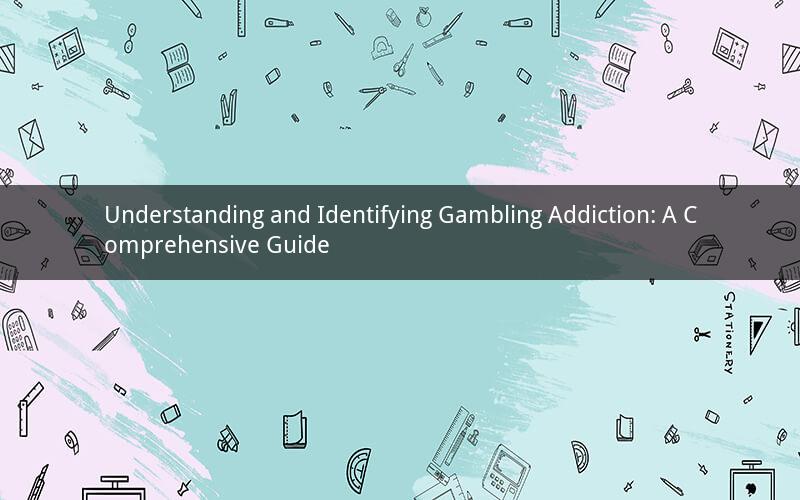
Introduction:
Gambling addiction, also known as gambling disorder, is a significant problem that affects individuals, families, and society as a whole. Identifying whether one has a gambling addiction is crucial in seeking help and taking the necessary steps towards recovery. In this article, we will explore various signs and symptoms that indicate a potential gambling addiction, as well as provide insights on how to address this issue effectively.
Signs and Symptoms of Gambling Addiction:
1. Inability to Control Gambling:
One of the primary signs of gambling addiction is the inability to control gambling behavior. Individuals may find themselves constantly thinking about gambling, feeling a strong urge to gamble, and struggling to stop despite negative consequences.
2. Increased Time Spent on Gambling:
Gambling addicts often dedicate a significant amount of time to gambling activities. They may prioritize gambling over other responsibilities, hobbies, or social activities, leading to neglect in various aspects of their lives.
3. Financial Strain:
Gambling addiction can result in severe financial problems. Individuals may experience mounting debts, loss of savings, or financial strain due to excessive gambling. They may also borrow money or commit illegal activities to support their gambling habits.
4. Emotional and Psychological Impact:
Gambling addiction can have a profound impact on one's emotional and psychological well-being. Individuals may experience feelings of guilt, anxiety, depression, or paranoia as a result of their gambling behavior. They may also experience mood swings, irritability, and decreased self-esteem.
5. Relationship Strain:
Gambling addiction can strain relationships with family, friends, and loved ones. Individuals may become distant, secretive, or even abusive due to their gambling habits. Relationships may suffer as a result of neglect, financial issues, or emotional turmoil.
6. Physical Health Issues:
Gambling addiction can lead to various physical health problems. Stress, anxiety, and depression associated with gambling can contribute to chronic conditions such as heart disease, hypertension, and insomnia.
7. Compulsive Behavior:
Gambling addicts often exhibit compulsive behavior, feeling a strong need to gamble even when they know it is harmful. This compulsion can be difficult to control and may persist even after experiencing negative consequences.
Seeking Help and Support:
1. Self-Reflection and Acknowledgment:
The first step towards addressing a gambling addiction is to acknowledge the problem. Reflect on the signs and symptoms mentioned above and determine if they resonate with your own experiences.
2. Seek Professional Help:
If you suspect that you have a gambling addiction, it is essential to seek professional help. A therapist or counselor specializing in gambling addiction can provide guidance, support, and effective treatment options.
3. Support Groups:
Joining support groups, such as Gamblers Anonymous, can offer valuable peer support and a sense of community. Sharing experiences and receiving advice from others who have faced similar challenges can be incredibly beneficial.
4. Financial Management:
Addressing the financial aspects of gambling addiction is crucial. Consider seeking financial counseling or seeking help from credit counseling services to manage debts and regain financial stability.
5. Developing Coping Strategies:
Identifying and developing healthy coping strategies is essential to overcome gambling addiction. Engaging in alternative activities, such as exercise, hobbies, or spending time with loved ones, can help reduce the urge to gamble.
FAQs:
Q1: How can I determine if I have a gambling addiction?
A1: Look for signs such as an inability to control gambling, increased time spent on gambling, financial strain, emotional and psychological impact, strained relationships, physical health issues, and compulsive behavior.
Q2: Is gambling addiction a mental health disorder?
A2: Yes, gambling addiction is classified as a mental health disorder known as gambling disorder. It is recognized by the American Psychiatric Association and requires appropriate treatment and support.
Q3: Can gambling addiction be cured?
A3: While there is no guaranteed cure for gambling addiction, it can be effectively managed and treated. With proper support, therapy, and lifestyle changes, individuals can overcome their addiction and lead healthier lives.
Q4: Are there any medications available for gambling addiction?
A4: Currently, there are no medications specifically designed to treat gambling addiction. However, certain medications may be prescribed to manage associated symptoms, such as depression or anxiety.
Q5: Can family and friends help someone with a gambling addiction?
A5: Yes, family and friends play a crucial role in supporting individuals with gambling addiction. They can offer emotional support, encourage seeking help, and assist in addressing the financial and relationship consequences of the addiction.